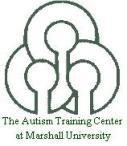Myths About PBS
 There are many myths and misconceptions about the methods and approaches utilized in Positive Behavior Support. A few of the most common misconceptions are clarified below.
There are many myths and misconceptions about the methods and approaches utilized in Positive Behavior Support. A few of the most common misconceptions are clarified below.
- Positive Behavior Support is a reward system.
False - The "Positive" in Positive Behavior Support means focusing on strengths rather than weaknesses. By focusing on the strengths, PBS follows a proactive philosophy. Reinforcement increases behavior and is applied to appropriate behaviors rather than inappropriate ones. The "Positive" in Positive Behavior support thus becomes a complete change in the environment.
- Positive Behavior Support uses bribes to get individuals to behave appropriately.
False - A reward is not the same as a bribe. Bribes imply that the reward is unplanned in its delivery when challenging behavior arises. Reinforcement on the other hand is planned and included in a behavior support plan to allow the individual to work towards something. When positive reinforcement is correctly administered, it follows appropriate behavior.
- The most effective behavior plans focus on eliminating or extinguishing challenging behaviors.
False - The most effective behavior plans focus on teaching skills and replacing challenging behaviors rather than eliminating or extinguishing them. By focusing on teaching skills, challenging behaviors can be replaced with more appropriate and positive ones.
- People usually know what is expected of them. The problem is they often choose not to do it.
False - This is a common misconception, especially when dealing with higher functioning individuals. When a skills deficit exists, expectations must be taught and clarified.
- Challenging behaviors are caused by a person's disability.
False - While PBS may be utilized to address challenging behaviors in individuals with disabilities, challenging behaviors can be exhibited by individuals without disabilities. Challenging behaviors are a result of factors in the environment surrounding the individual exhibiting the inappropriate behaviors.
- Labeling challenging behaviors as "manipulative" or "aggressive" helps teams design more effective behavioral interventions.
False - "Manipulative" and "aggressive" are subjective terms. An interobserver agreement can not be established using subjective terms. It is important to use clear, concise, specific and objective language and terminology.
- Stakeholder involvement is needed only when challenging behaviors are severe.
False - Becoming involved only when challenging behaviors are severe is a reactive approach. Positive Behavior Support embraces a proactive philosophy. Teams should become involved immediately in the behavior support process and practice proactive strategies.



